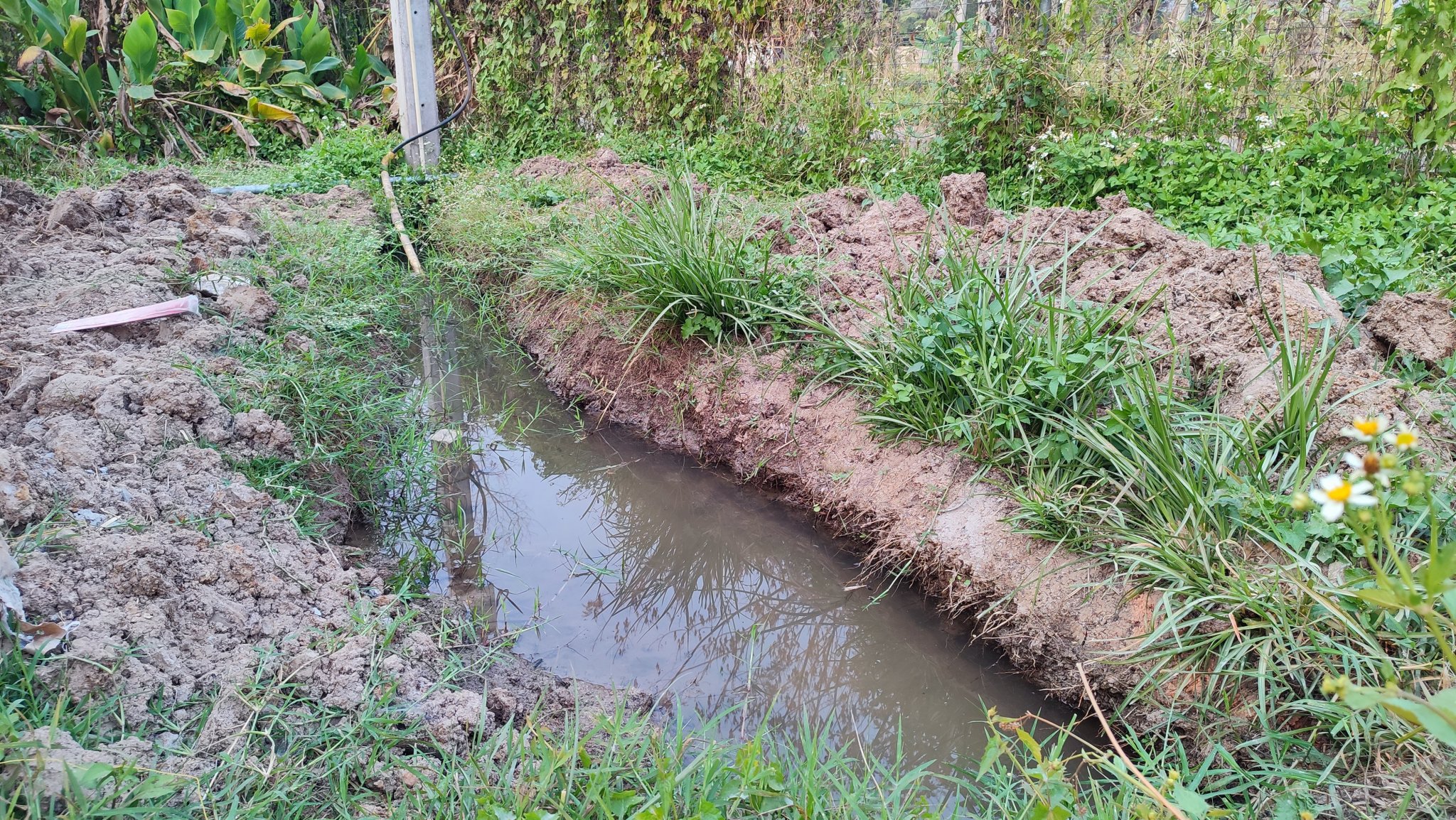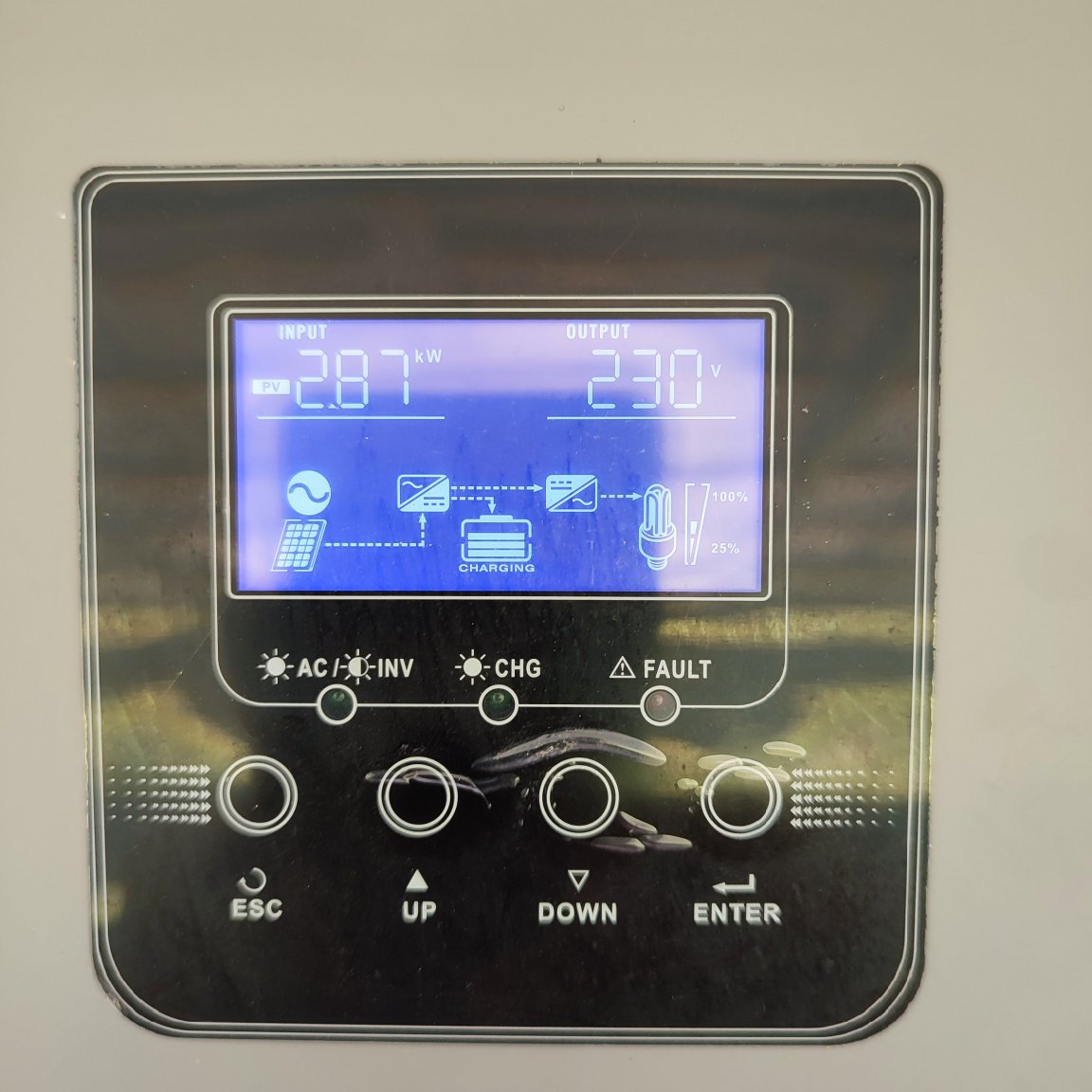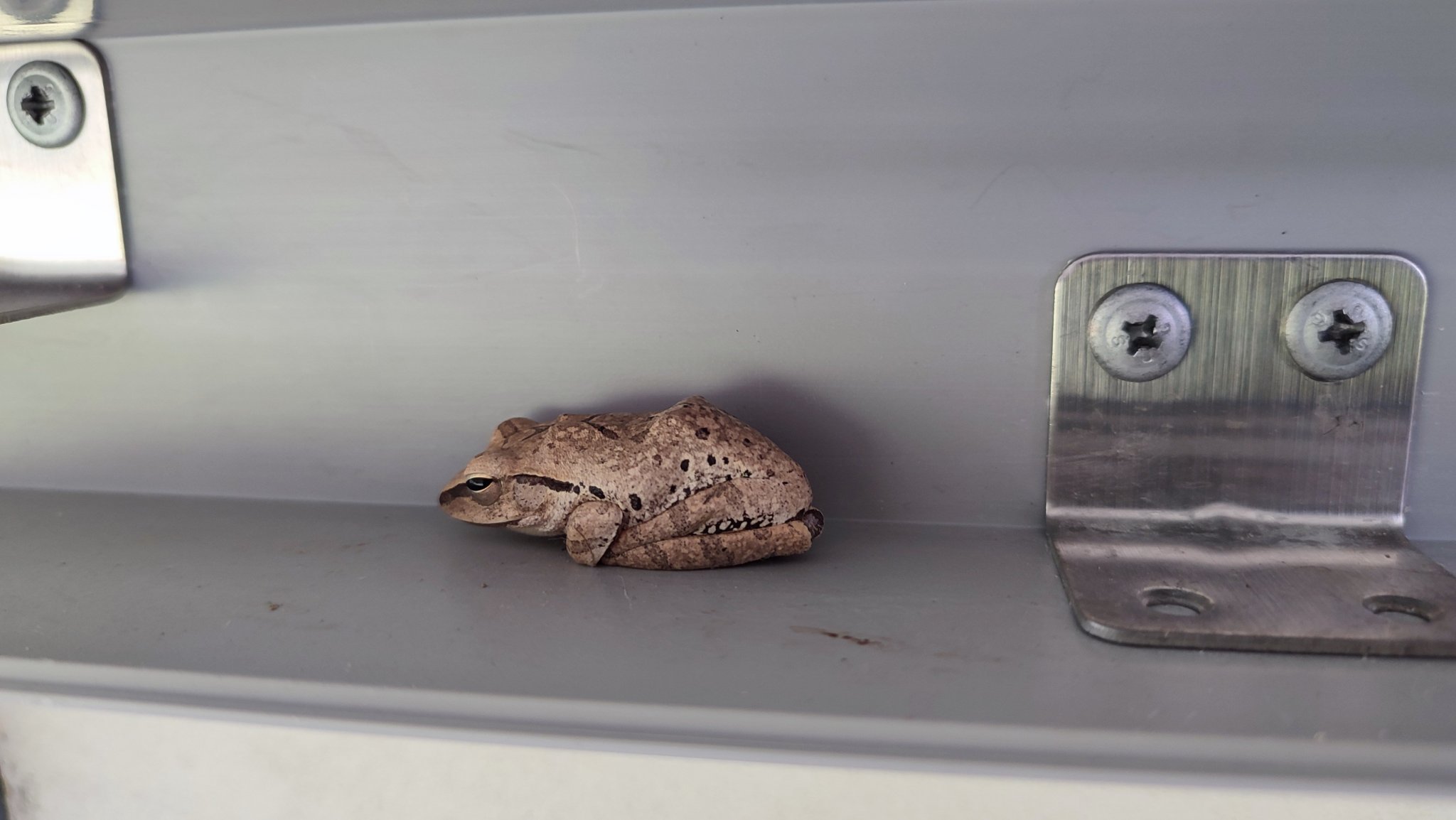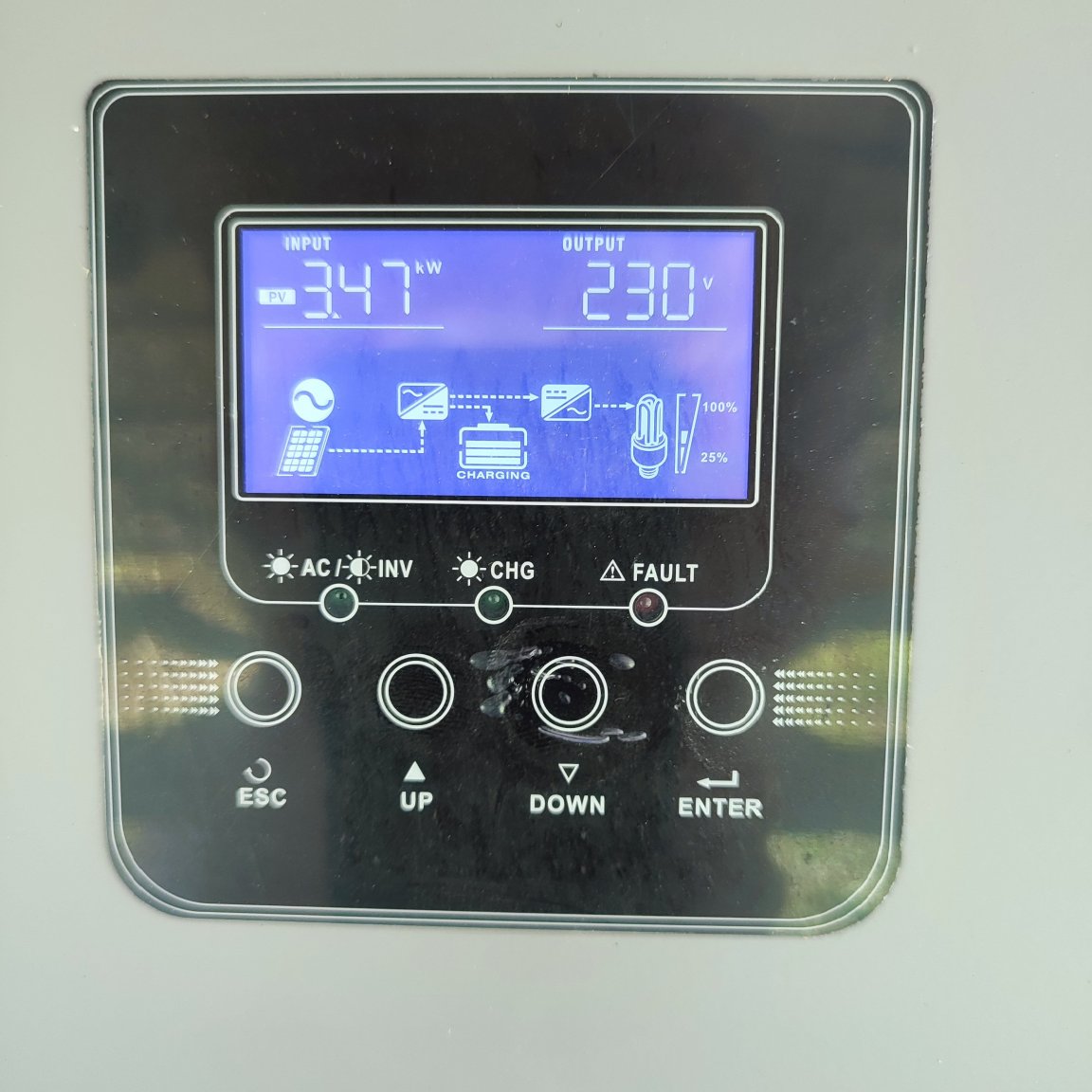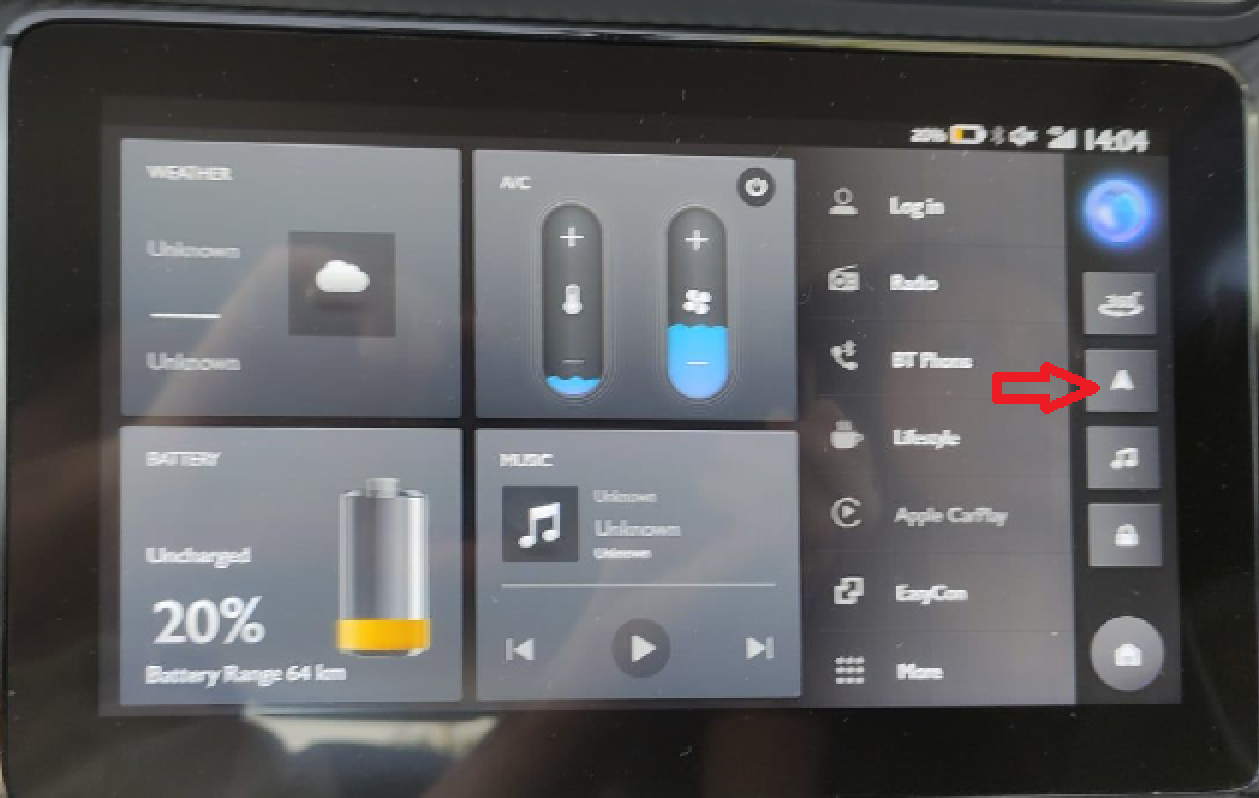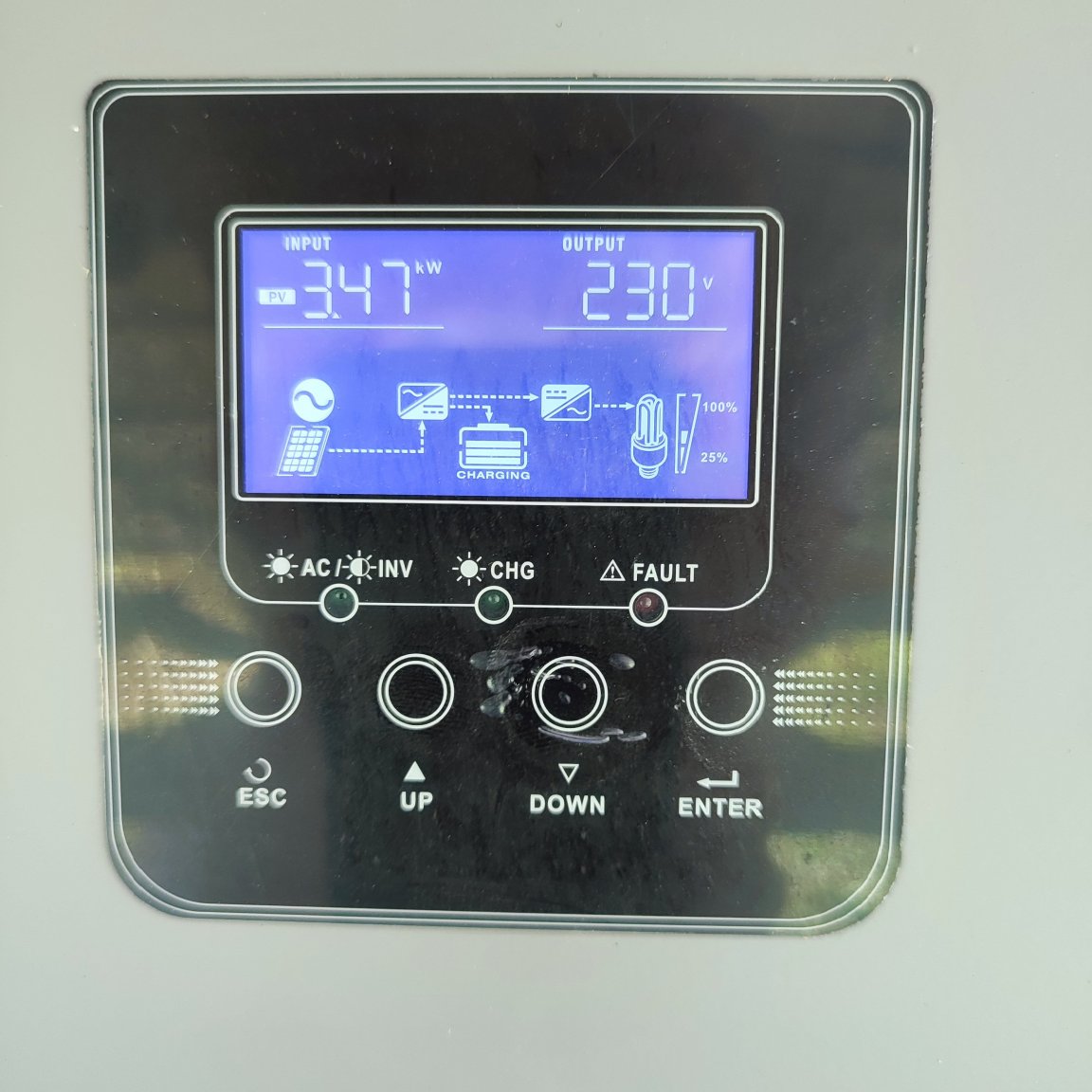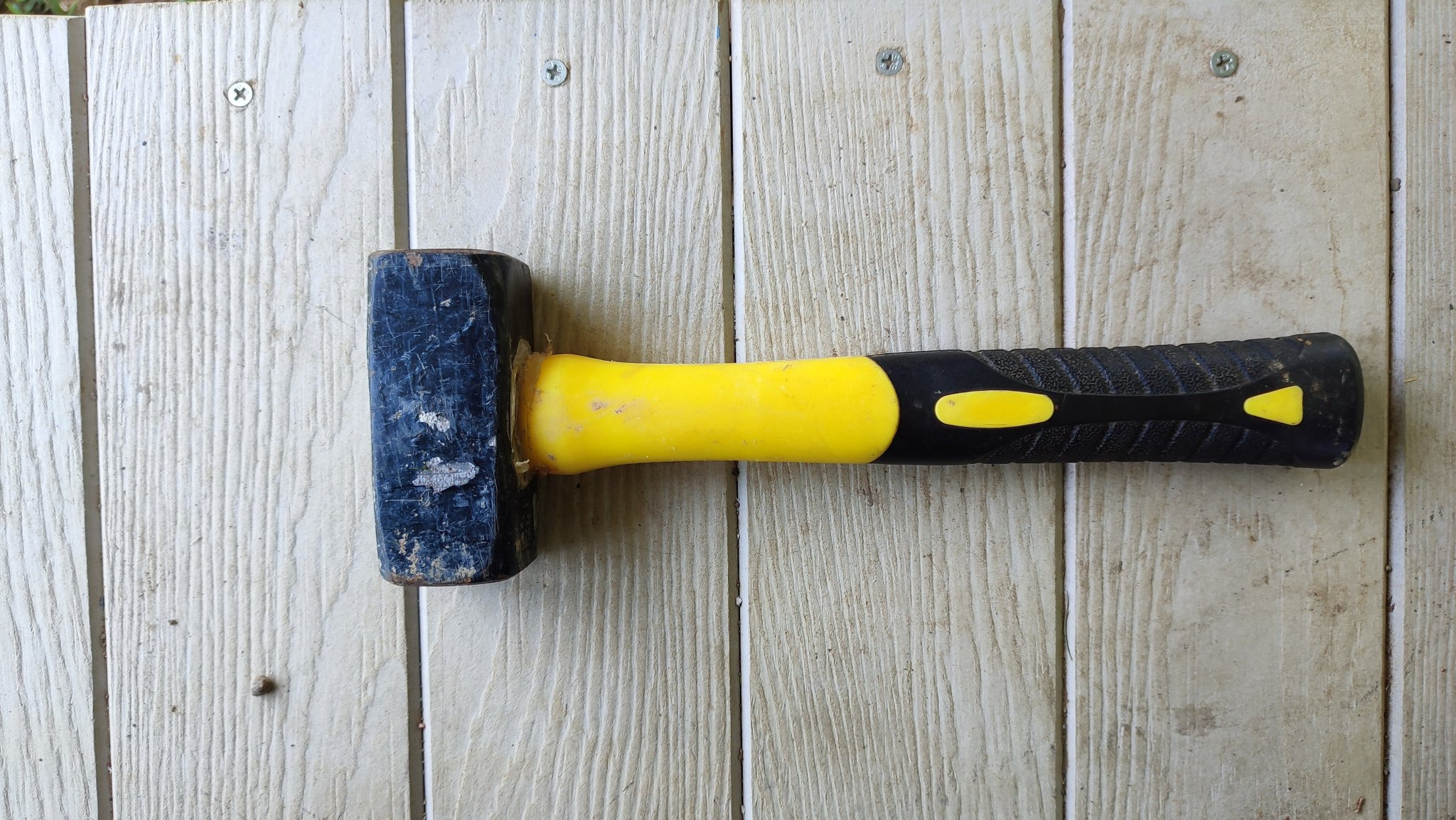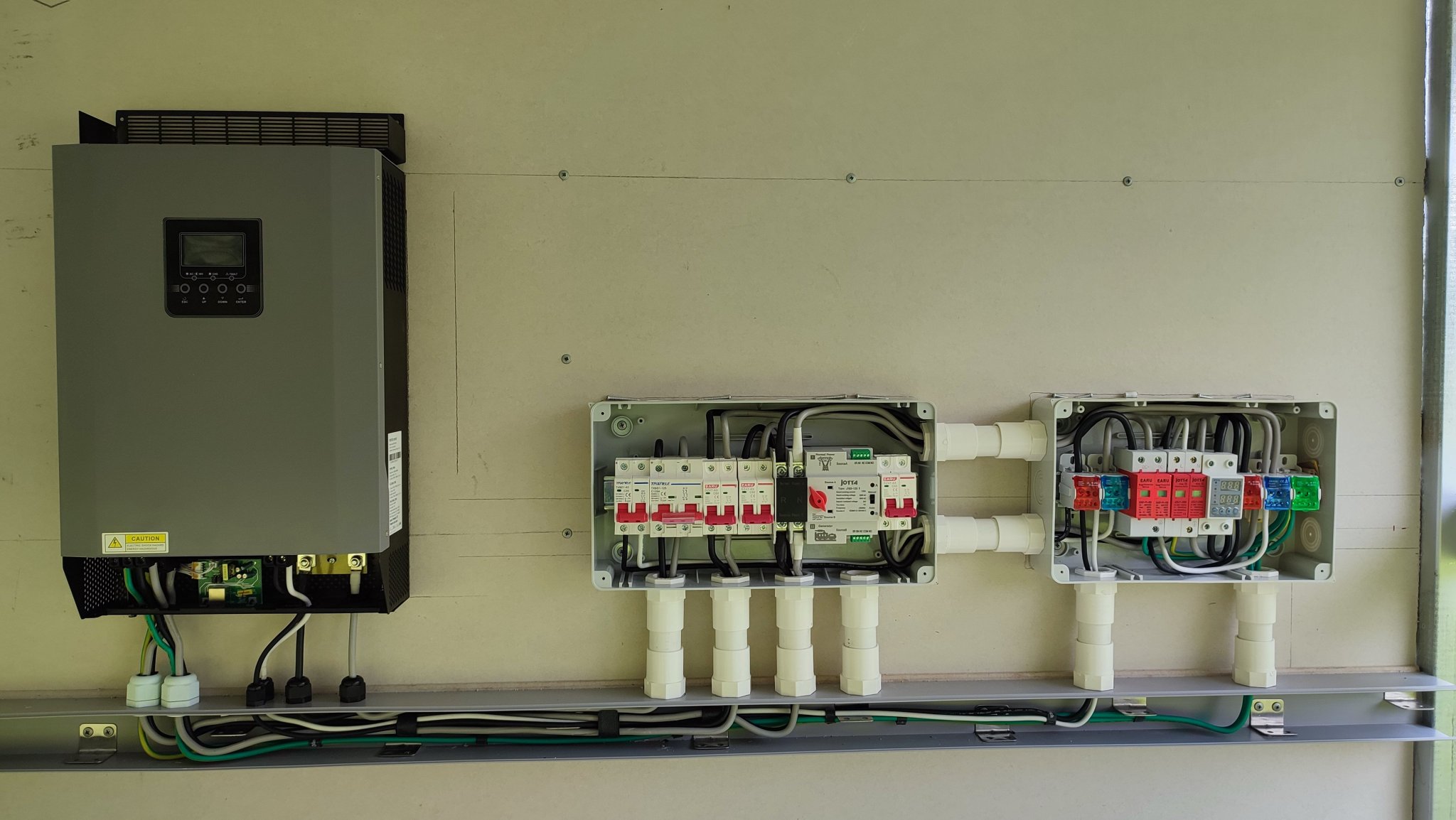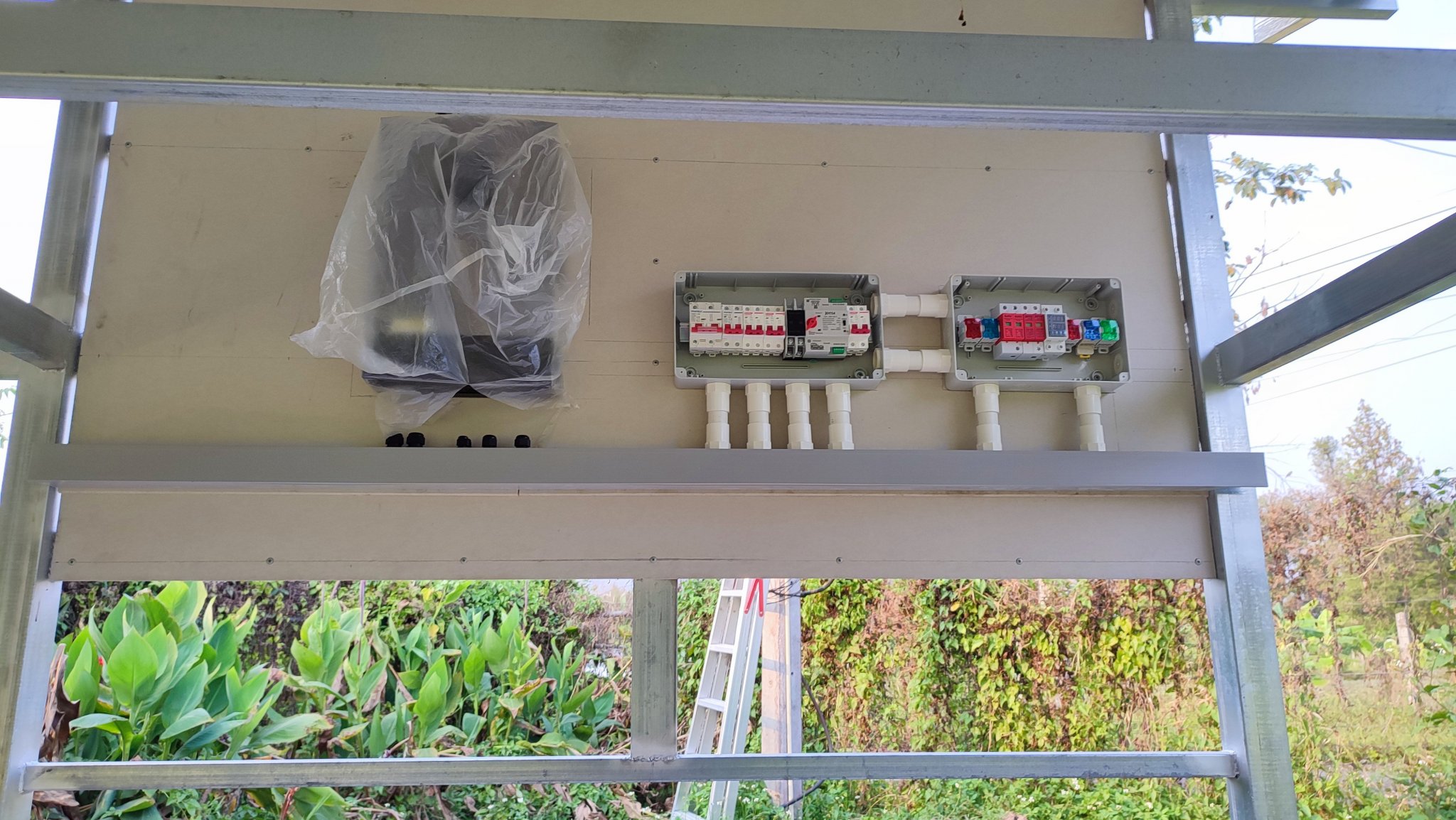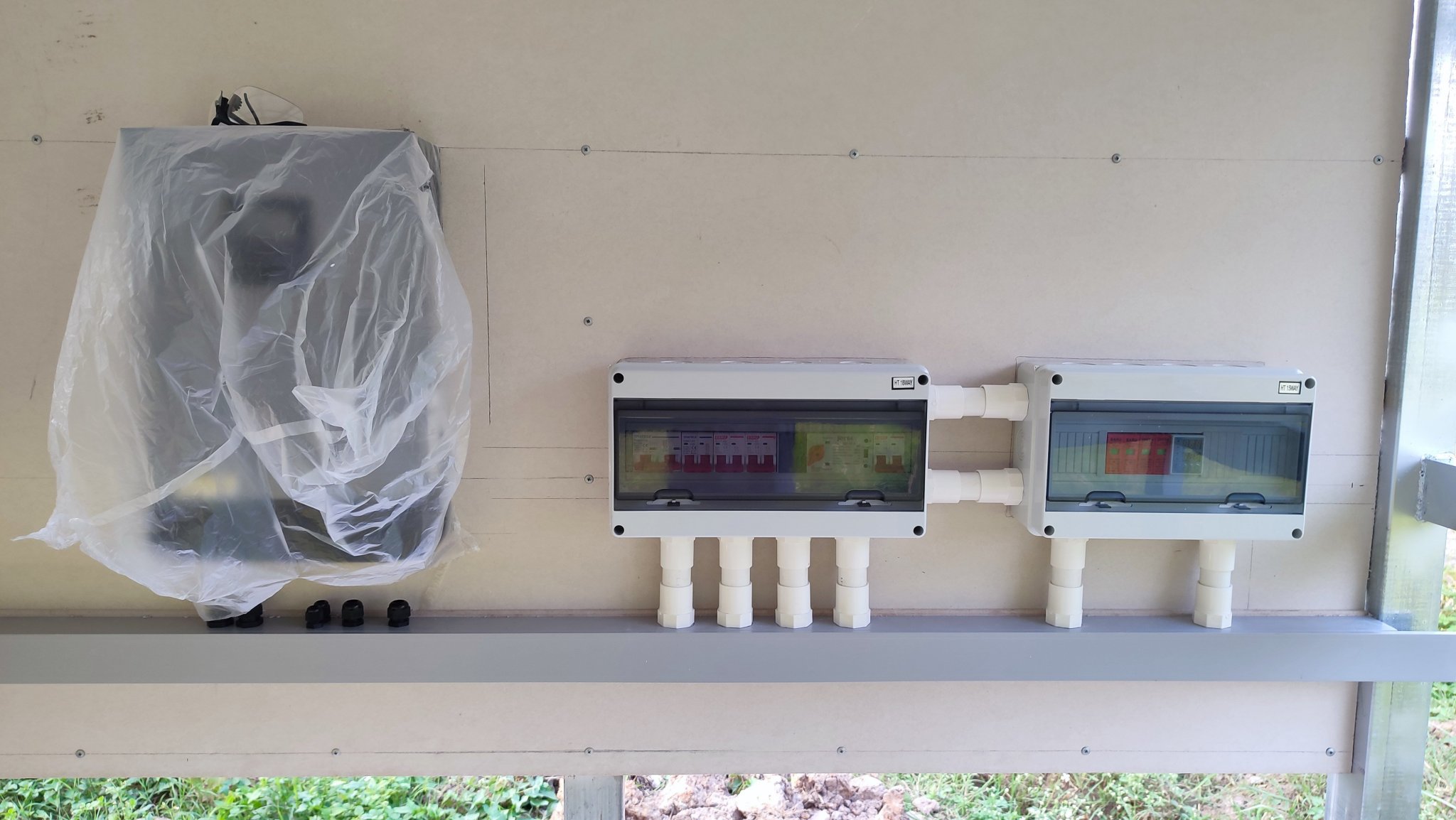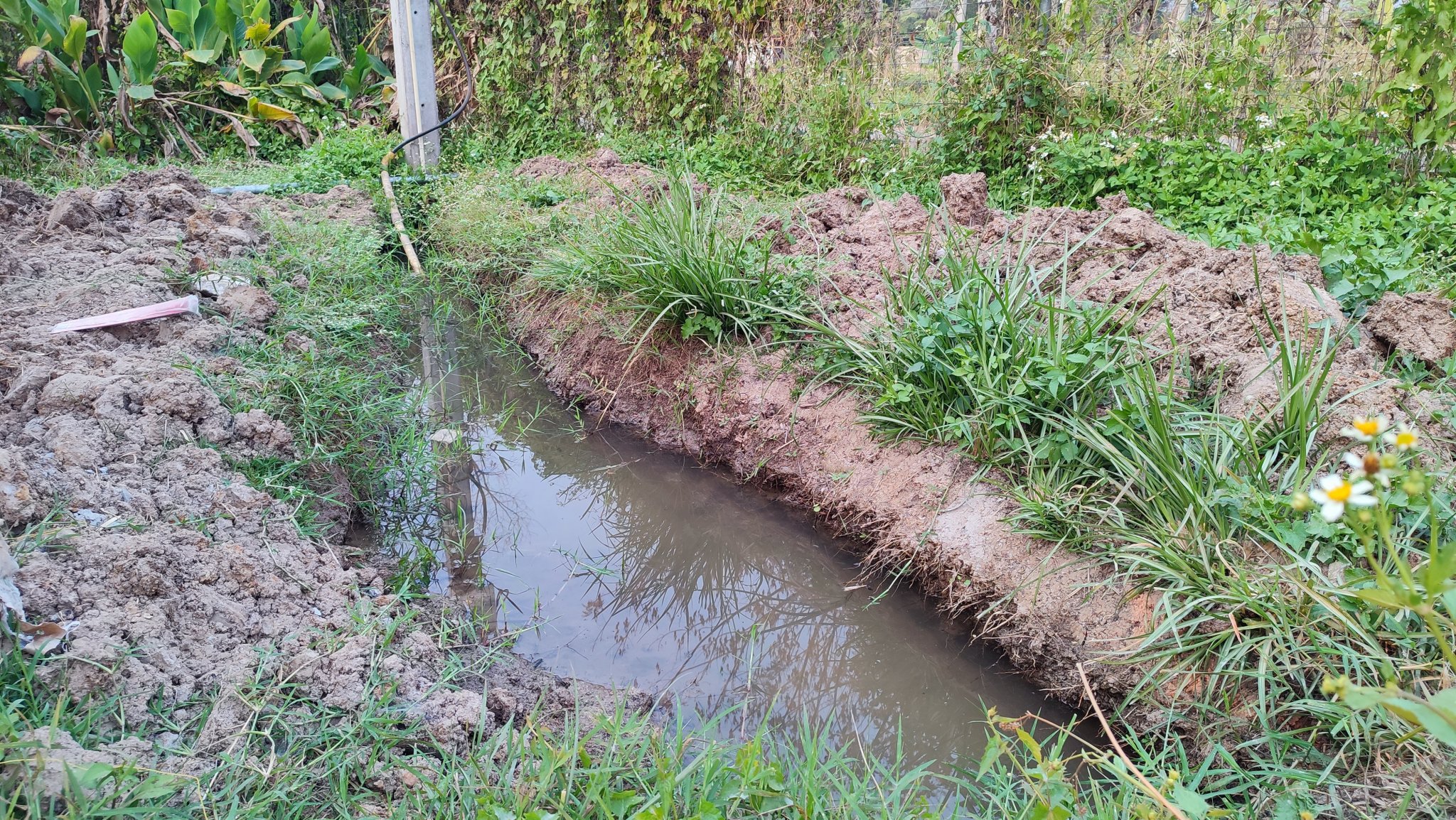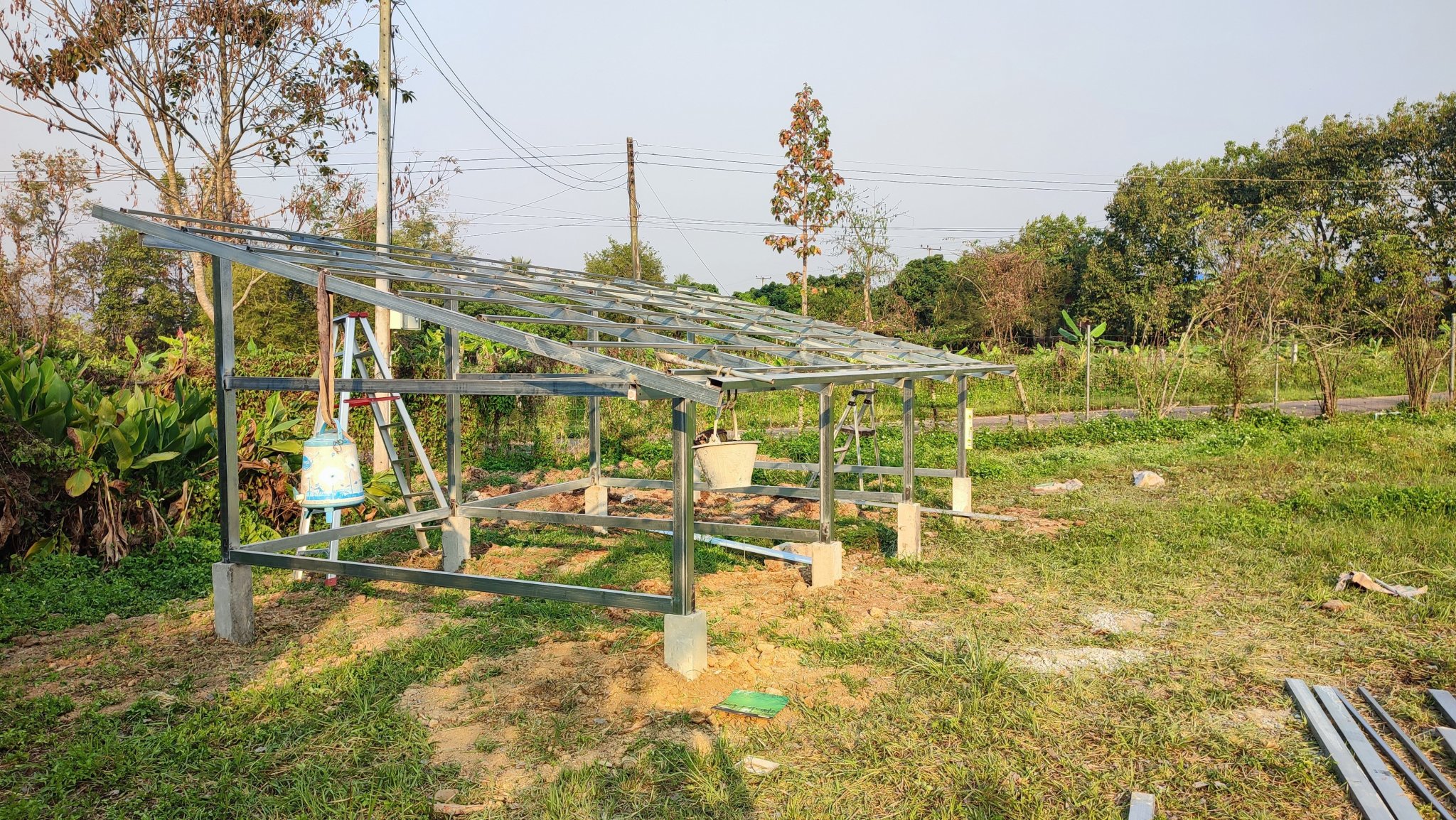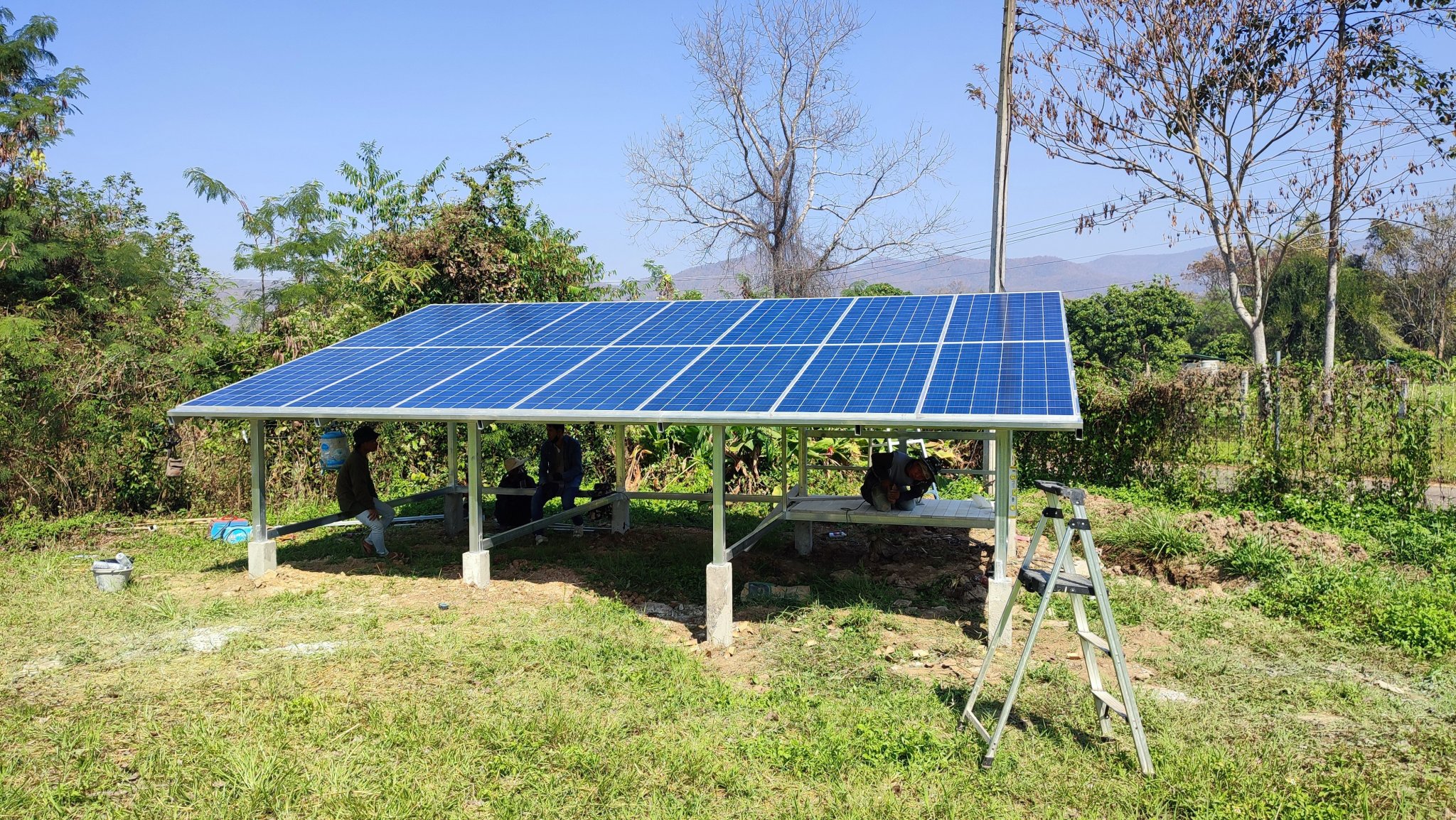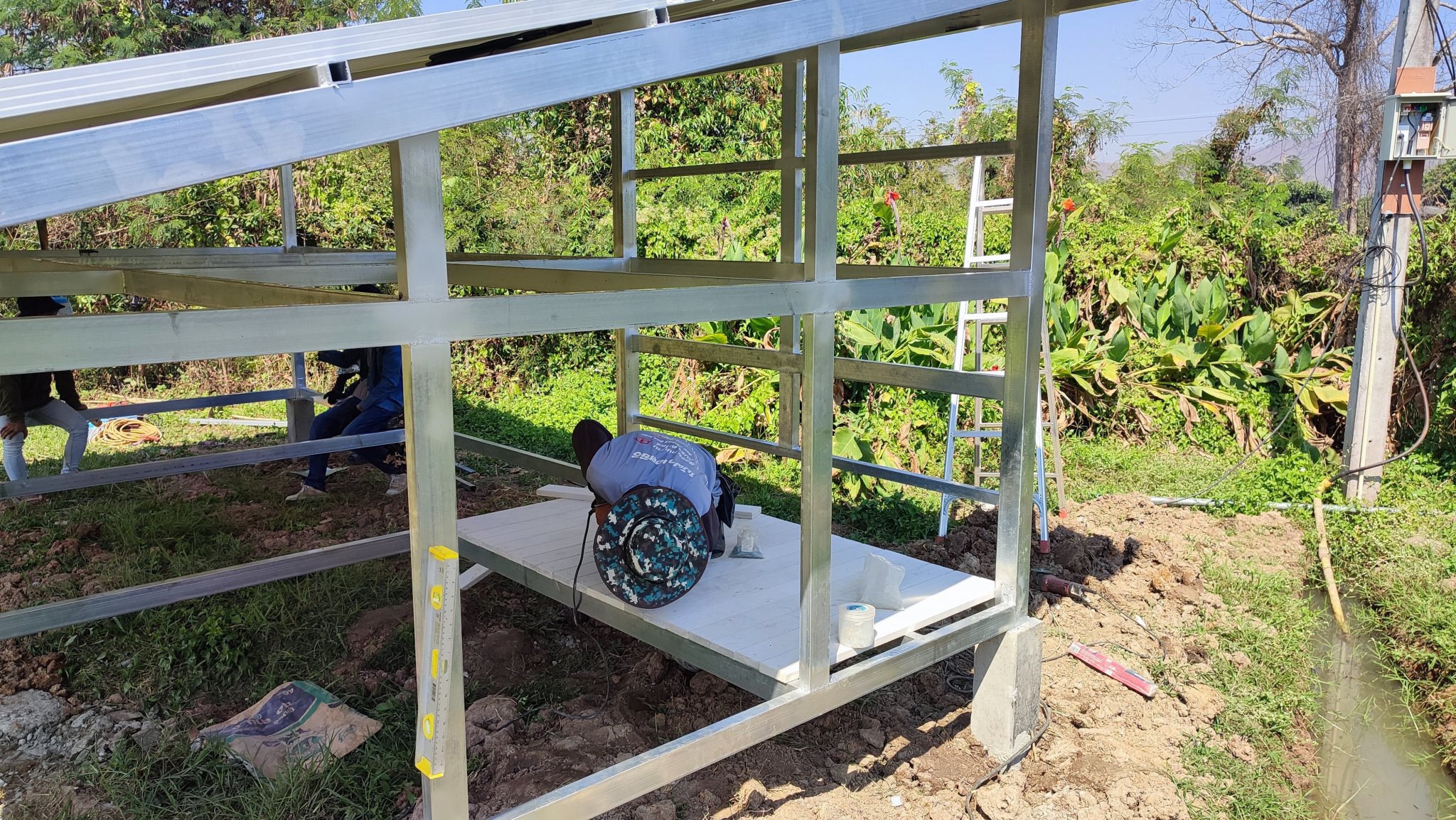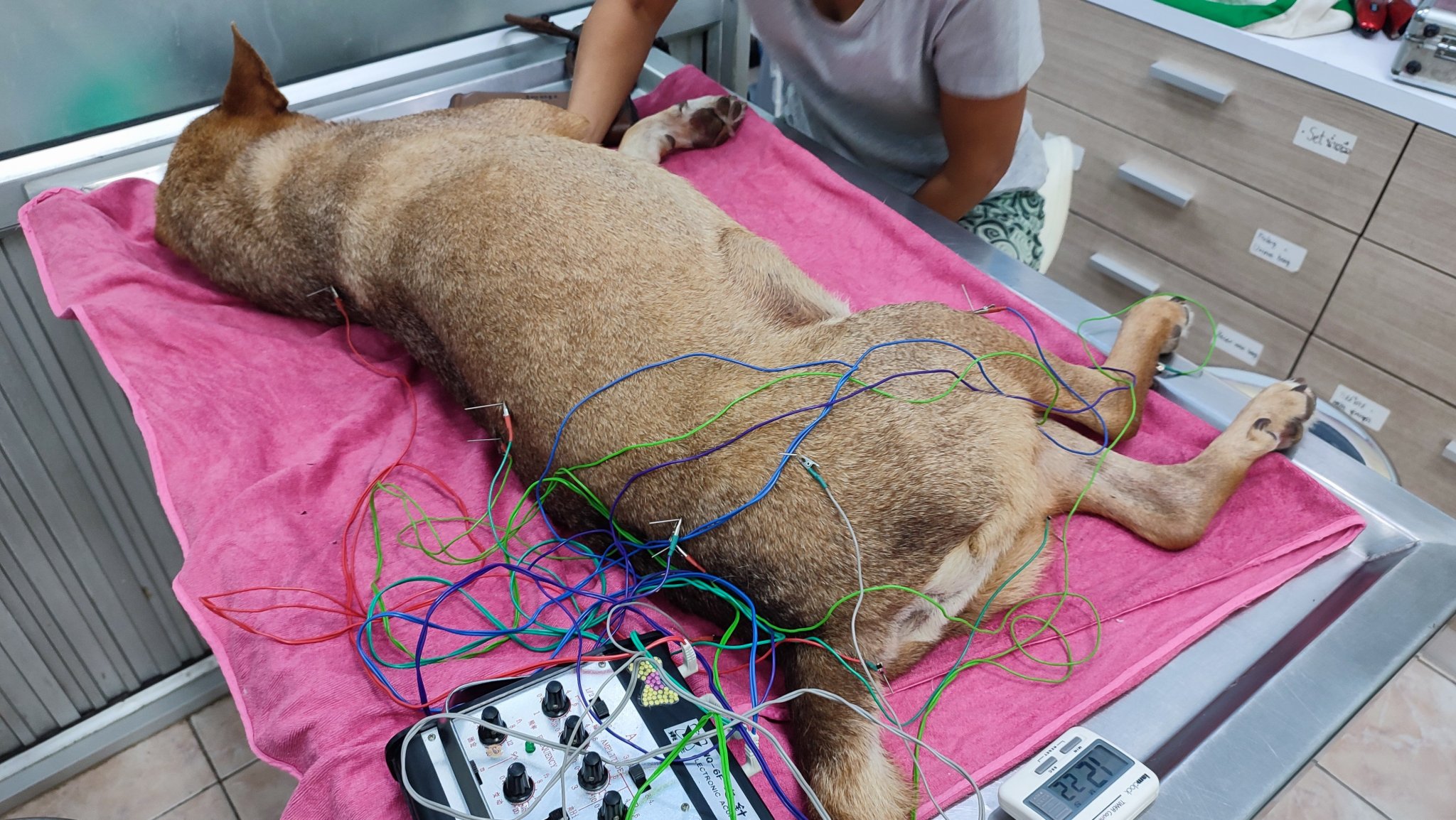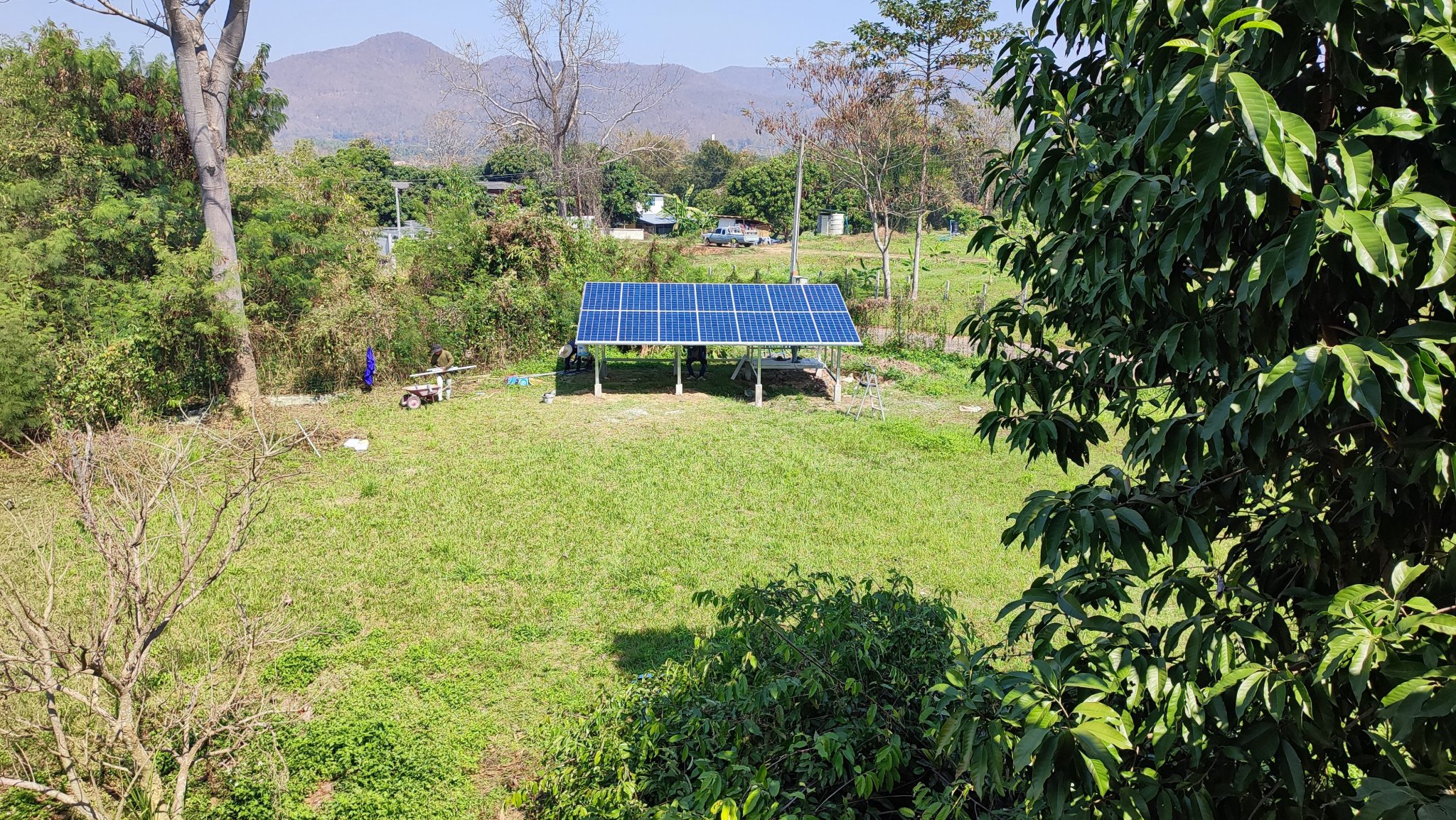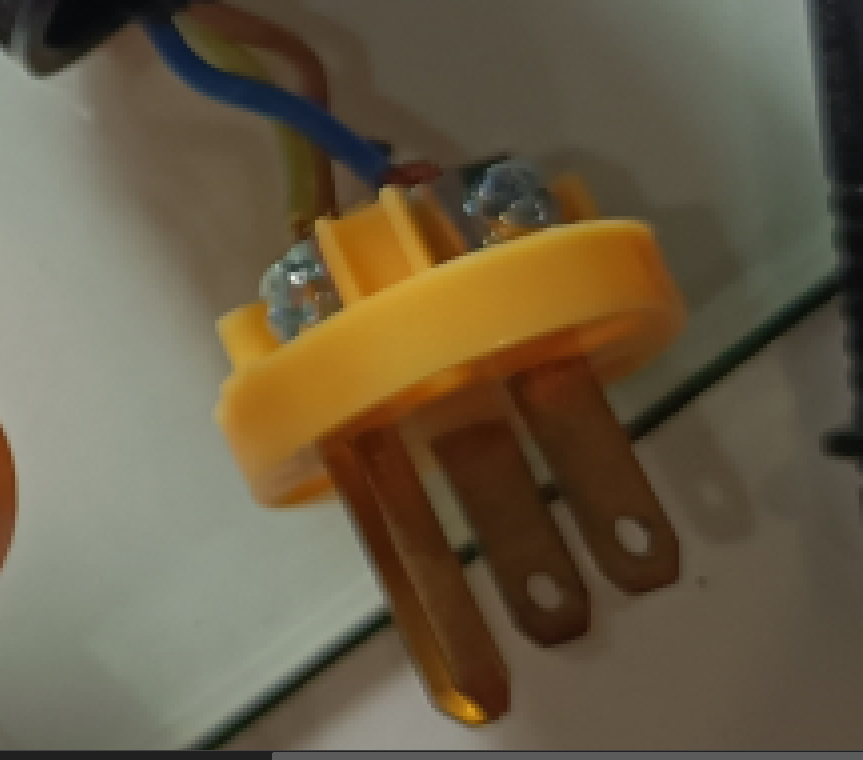-
Posts
2,976 -
Joined
-
Last visited
Content Type
Events
Forums
Downloads
Quizzes
Gallery
Blogs
Everything posted by Sophon
-

How about a solar car port on a budget?
Sophon replied to Crossy's topic in Alternative/Renewable Energy Forum
Definitely a tree frog, but even tree frogs lay their eggs in water which I guess is why the frog was there in the first case. We had lots of tadpoles in the ditch we dug to get access to the cables running to the house, but unfortunately (for them) that have dried out over the last couple of weeks. And besides, we have trees growing around the pond. -

How about a solar car port on a budget?
Sophon replied to Crossy's topic in Alternative/Renewable Energy Forum
Slightly better results today, this photo was taken at noon: I had to evict a lodger today. He/she has been living in the cable trunking for the last three weeks, but today I closed up the open end allowing entry/exit so he/she had to be relocated to our pond. -

How about a solar car port on a budget?
Sophon replied to Crossy's topic in Alternative/Renewable Energy Forum
My system has only been online since the 19th of last month, so don't know yet what my peak production is. But back on the 22nd of March at 11.18 (when we also had air pollution but not as bad) I got around 3.5 kW: Today at noon it was hovering around 2.2 - 2.3 kW. -

Solar power, can it be done DIY?
Sophon replied to Sophon's topic in Alternative/Renewable Energy Forum
Another week has passed, this time with the system fully operational for the whole time, so time for another trip to the PEA meter. Over the last week we have imported 5.5 kWh, so down 95% compared to what we used per week in the month before our solar system was installed. The weather has been sunny lately with very few clouds, but we live in the North so there has also been a thick haze due to the pollution. So good, but by no means perfect conditions for solar production. -

Solar power, can it be done DIY?
Sophon replied to Sophon's topic in Alternative/Renewable Energy Forum
So, Sunday morning I read the meter exactly one week after the official meter reader person came by. For that week we had used 21-22 kWh from PEA, while our consumption for the previous month without solar (and the first month with our new EV) was 450 kWh. 450 kWh for the month comes out to about 100-110 kWh per week, so the 21-22 kWh equates to savings of about 80%. I'm pretty happy with that, especially considering that: We only turned on the solar panels on the afternoon of the day the meter was read, The battery was not connected until the afternoon of the day after the meter date, The BMS is still trying to calibrate to the battery, initially it was showing battery at 25%, when it was really 90% full. To teach the BMS when the battery is full/empty, I intentionally let the battery run way down by dumping the energy into the EV. So we ended up using PEA more than necessary because of the empty battery. -
Are you sure about that, that would be very strange and my ZS EV does have a Navigation app. Also, in one of your earlier posts, you posted this pic which shows a shortcut to a navigation app:
-

Bangkok Bank Cardless Access to ATMs
Sophon replied to Danderman123's topic in Jobs, Economy, Banking, Business, Investments
ianguygil works for Bangkok Bank and have been helpful to many members here over the years. -

Solar power, can it be done DIY?
Sophon replied to Sophon's topic in Alternative/Renewable Energy Forum
So, we got the panels connected on Sunday, which coincidentally was the same day the meter reader came by. Not much production though, since I still hadn't assembled and connected the battery. Got that done on Monday, so now fully up and running. This is from around 11 this morning while charging the EV and producing 3.47 kW: Some friendly advice, don't put your hammer on top of a ladder. I did, and when I accidentally brushed against the ladder, the hammer fell about a meter and hit me dead square center on the top of my head. And not just any normal hammer, no one of these big guys I had been using to hammer in the ground rod: I had a baseball cap on, which softened the blow slightly, but still not a pleasant experience. Since the system basically started on meter reading day, I expect the next bill to be drastically lower. Hopefully by at least 80%. -

Solar power, can it be done DIY?
Sophon replied to Sophon's topic in Alternative/Renewable Energy Forum
The C.U.s and inverter are wired up internally, so now I "just" have to connect the peripherals (solar panels, battery, PEA supply and house load). I know the wiring could be neater, but 16 sq.mm seven strand cable is a pain to work with in small spaces: -

What Is Your Favorite Bank...
Sophon replied to AcuDoc's topic in Jobs, Economy, Banking, Business, Investments
I have accounts in all those five banks, and would probably rank them in the same order as you. For me, Bangkok Bank and Krungsri come in far ahead of the other three banks, SCB and Kasikorn is on about the same level and Krung Thai comes in as a distant last. -
That is not true, you can keep the same number plate and have the car registered in your name even if the car is registered in a different province to where you live. I bought a used car with Petchaburi plates and had it registered in by name even though I at the time lived in Bangkok. You can just go to the DLT in the province where the car is registered, and they will do the transfer no matter where you live. I just last week bought a new car from a dealership in Chiang Mai. We now live in Lamphun, so the dealership asked us if we wanted Chiang Mai or Lamphun plates (the wife chose Chiang Mai). The dealership will just register the car in the province of your choice, the DLT doesn't care if it's not in the same province where you live. And no, it has nothing to do with corruption, there is no rule that says te car has to be registered in the same province as your address.
-

Solar power, can it be done DIY?
Sophon replied to Sophon's topic in Alternative/Renewable Energy Forum
Equipment is starting to get mounted under the panels, but nothing is wired up yet: With the CU lids on: Next task is to start getting the cables in place, but life is keeping us busy at the moment so progress will be slow over the next few weeks. -

Solar power, can it be done DIY?
Sophon replied to Sophon's topic in Alternative/Renewable Energy Forum
Yeah, I tend to overengineer things but it gives me peace of mind. Otherwise I would be worrying every time a strong thunderstorm blew by. -

Solar power, can it be done DIY?
Sophon replied to Sophon's topic in Alternative/Renewable Energy Forum
Unfortunately, our project got delayed a couple of months. First it was delayed by unseasonal thunder showers in December, and when that cleared up a village water pipe running along our land right next to the solar panel location broke. For a month and a half no-one could be bothered to fix the pipe resulting in, what at this time of year should be bone dry dirt being absolutely soaked: This is the trench I had to (have some-one) dig, to gain access to the electrical cable leading to our house. On top of that, one of our dogs got paralyzed by Ehrlichiosis Canis brought on by ticks, and completely lost all control and feeling in his back legs and lower back as well as his bodily functions. So we have had to carry him around and empty his bladder by inserting a catheter every day. We also had to arrange for someone to sit with him, if we had to go somewhere, so all that took up quite a bit of our time. Fortunately, he is now doing better and can walk around on his own, although he is still dragging one of his back legs behind him. Toto during his first acupuncture session: But in the end we managed to have the ground structure for the solar panels build: And the panels mounted: The battery, inverter and other equipment will be mounted in the corner where I will build a small raised semi-enclosed area: Next step is to put up cementboard for walls on the back and right side to keep the area dry when raining. Front and left will probably just be covered by some kind of tarp to help keeping the area well ventilated and relatively cool. The ground structure is located at the North-Eastern corner of our land close to where the PEA supply lines enter: -

Growatt SPF5000ES Offgrid 9kw DIY Solar Project
Sophon replied to Pink7's topic in Alternative/Renewable Energy Forum
I assume that the "380" part was just a typo, and that what you ordered (and got) was LF280K batteries? -
But the gasohol savings are not really (or not entirely) a result of installing solar. Even without installing solar, you could still have bought an EV replacing your THB 5k gasohol bill with lets say an additional THB 2k on your PEA bill for charging. In reality, only THB 2k of your savings on transportation costs is down to installing solar, the remaining THB 3k is because you invested in an electric vehicle. So your monthly savings from installing solar is THB 5.5k giving a payback time of 7.5 years. Note, I don't know how many kWh you use driving, so the THB 2k I quoted is just an example.
-

EV Owners … Real life experience & help thread
Sophon replied to KhunLA's topic in Thailand Motor Discussion
-
Yeah, forgot about that one, which I shouldn't have as I saw one just yesterday in Chiang Mai (I also saw my first Neta V) . The OP should note that the MG EP currently sold in Thailand is the old model, in other markets it has already been replaced by a facelifted model.
-
-
That is going to be a short list, the only one I can think of off the top of my head is the Neta V:
-
It might be different for different charging networks, but I did see one of his earlier road trip videos where the charger stopped charging five minutes before the hour.
-
Plus the five minutes before the booking slot.
-
It's two months before the day you apply (not 60 days), so you won't be able to apply until the 7th of February. Just to add; there is no requirement to apply a minimum of two weeks before, but it's advised to do so in case you have problems with paperwork etc. In your case that will not be possible
-
-


